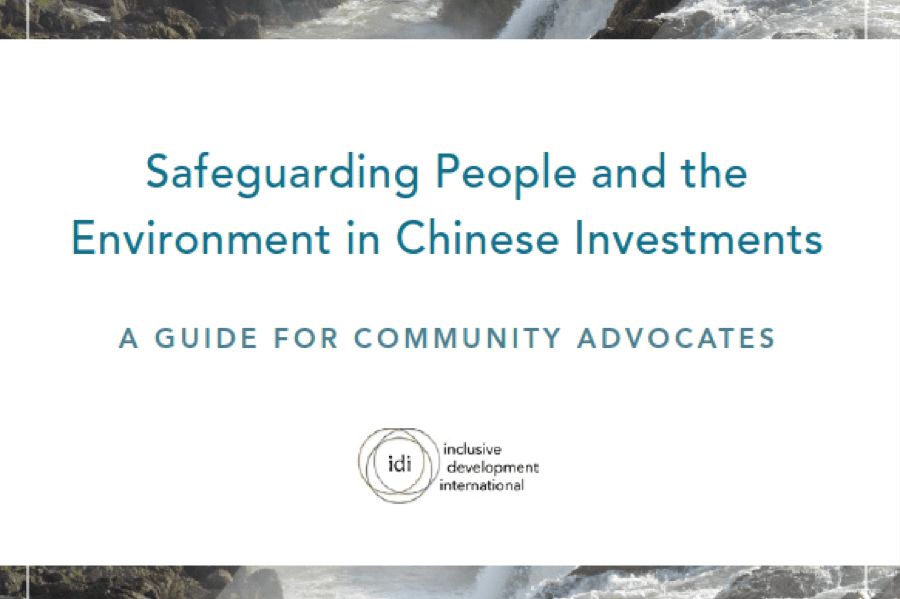Inclusive Development International is pleased to announce the publication of a new set of action resources for advocates on Chinese outbound investment and infrastructure finance. Safeguarding People and the Environment in Chinese Investments: A Guide for Community Advocates, which IDI released today, is a practical guide to the policies, standards and guidelines that apply to Chinese outbound investment.
In recent years, China has become one of the most important sources of foreign direct investment and development finance in the world. Chinese companies play various roles in overseas projects, from research and design, to construction, development and operation. Chinese financial institutions make many overseas development projects possible by providing billions of dollars in loans, risk guarantees and equity investments.
This investment brings with it potential benefits, but also human rights, social and environmental risks. Communities impacted by Chinese investments, and the civil society groups that seek to support them, often encounter difficulties obtaining project information, communicating with developers and financiers, and raising concerns or complaints.
In response to bad publicity and challenges faced by companies when going out, over the past ten years, Chinese state institutions and industry groups have developed a formidable body of policies and guidelines that apply to Chinese companies developing, operating or financing overseas projects. Yet, despite the promulgation of these new guidelines meant to promote sustainable development and prevent adverse impacts, China-based financiers and companies have continued to back development and investment projects across the world that have had devastating impacts on local communities and the environment. While the policy developments show promise, the challenge now is to promote their implementation, and in the longer term, their alignment with international human rights and environmental standards.
Understanding China’s financial institutions, companies and state actors responsible for the oversight of outbound investment is imperative if people on the receiving end of these investments are to have a say in the projects that affect them and the resources they depend upon.
This guide explains the key actors involved in Chinese overseas investment and describes the environmental and social standards and guidelines that apply. The guide provides practical tips on how these standards can be used in advocacy with relevant Chinese actors and institutions. IDI hopes that this resource will assist community advocates to put these standards to the test and demand that the rights of people affected by Chinese investments are respected and protected.
The guide can be downloaded here.
The policies, standards and guidelines covered in the guide are compiled on this page on IDI’s Following the Money to Justice website. New documents will be posted here as and when they are adopted.
In addition to these resources, IDI has published six fact sheets on the key takeaways from our 2016 report Making Inroads: Chinese Infrastructure Investment in ASEAN and Beyond, which are now available in six languages: English, Khmer, Vietnamese, Thai, Burmese and Chinese.
The full report and factsheets in six languages can be downloaded here.
IDI would like to thank Heinrich-Böll-Stiftung South East Asia, The McKnight Foundation and Planet Wheeler Foundation for supporting the research and development of these publications.


